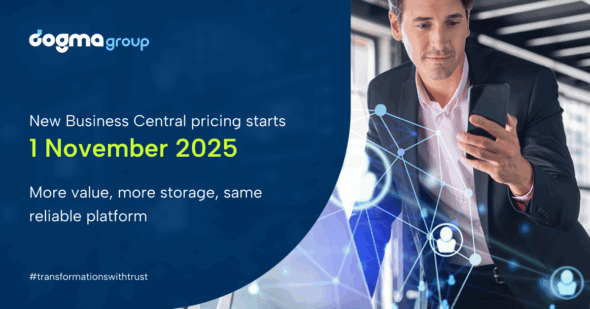• Are your employees reticent to use the CRM?
• Is your current CRM system slow and inefficient?
• Do you spend more time doing admin than following up on sales opportunities?
• Are you lagging behind with an outdated CRM solution but apprehensive about moving to the cloud?
If you have answered yes to any of these common CRM frustrations, SeeLogic can help. SeeLogic is offering a FREE CRM consultation from one of our expert consultants. Read more about SeeLogic here.
How to arrange your free CRM consultation ?
Email us – info@seelogic.co.uk
Or contact us online.
Below are some of the most frequent CRM frustrations we have come across together with how we can help alleviate these issues.
My employees resent or refuse to use our CRM system
This must be the most frequent issues we come across. If, used effectively, CRM can increase a company’s revenue and retention rates by between 10%-20% *source Aberdeen research
Therefore, ensuring your employees all use your chosen CRM system is vital to success.
Here are some of the barriers to user-adoption that we often come across:
“Stick approach”
Even with the best technology in the world, if users are told they must use the system and are left to get on with it, barriers can often immediately be put up. This is especially true of users who find new technologies intimidating and may have found comfort in knowing how to use their old system, even if it was over-convoluted or outdated.
Instead, a “carrot” approach that assesses and manages the impact of change on the different user groups is often far more successful. Getting users’ buy-in requires taking them on a journey by understanding their current points of pain, listening to their needs and introducing the relevant areas and benefits of the new solution in relation to their role with lots of support thrown in.
Inadequate Change Management
SeeLogic can work with your organisation to develop a communication plan and change management strategy to ensure maximum user adoption within your company, including; staff surveys, contextual training, email campaigns, product previews, high quality in-context training and on-going support. To discuss this further, contact us to claim your free CRM consultation.
Poor training
Presenting a user with a new system and providing generic ‘this button does this and this button does that’ training will immediately turn users off.
However, contextual, scenario-based training will help users understand how the new system will be used daily-to-day and the benefits to them in their role.
System is not aligned to business processes
E.g. Users are working around the system, rather than the system working for them. Users are often presented with too many fields; perhaps some unnecessary, and others not relevant at that stage of the process.
A detailed scoping exercise prior to the CRM implementation is crucial to successful user adoption. An expert consultant will challenge you as to whether you really need so many fields and tease out what information is required at each stage of the customer journey and for management reporting purposes. This way, when it comes to project go-live, users will not be bombarded to enter lots of unnecessary information but instead be guided to enter the right information at the right time. Furthermore, many CRM systems now offer machine learning to further prompt users as to what the next-best actions are.
We are lagging behind using on-premises CRM but are apprehensive about moving to the Cloud
If your company relies on an on-premises solution and is cautious about moving to the cloud, then you are not alone. In the past, CIOs were very concerned with security and complexity when it came to migrating data to cloud services. These fears have been abated with the continual improvement and development to cloud environments. In fact, the cloud is often a more secure environment than on-premises solutions.
Benefits of moving to the cloud
Security
Overall, on premises environments are more susceptible to attacks than cloud hosted provision *source Alert Logic[/text-with-icon][text-with-icon icon_type=”image_icon” icon_image=”2095″]
Cost
Not having to pay to maintain or service on premise servers is very appealing. Typically, on- premises CRM systems cost 60% higher on an annual basis compared to their cloud based counterparts, starting after the first year!
Limited internal support to maintain hardware and software
With on-premises solutions, new versions of software require IT teams to test and install the upgrades and sometimes hardware and server software to be upgraded to meet minimum system requirements. However, moving your CRM data to the cloud will reduce the pressure on your internal IT team as there is no hardware to support and maintain.[/text-with-icon][text-with-icon icon_type=”image_icon” icon_image=”2096″]
Mobility
Mobile access to your CRM system, anytime, anywhere. Using your free CRM consultation, an independent consultant like SeeLogic can help you make the best decision for your business by assessing your requirements and making recommendations based on specific business needs.
My current CRM software is clunky, slow and painful to upgrade
This issue is very common; many of our clients have come to us with an over- customised CRM. This causes inherent issues such as; upgrades causing things to error and integrations to break, being stuck on an outdated version of software efficiently. This then leads to employees not wanting to use it and users finding it difficult to retrieve data. CRM is meant to increase efficiency within your workplace, however if over customised, or not aligned to business processes it can do quite the opposite.
With so much functionality available at your fingertips with today’s modern CRM solutions, there should be very little reason to customise a CRM. SeeLogic operates a “configure-first” approach by advising organisations how they can best align both business processes and technology in order to gain maximum benefit from their CRM investments whilst keeping total cost of ownership low.
At SeeLogic we offer a range of services to ensure the CRM projects we manage suit your business needs, not over complicate things. Business process mapping, Digital transformation and high-quality training will support a successful implementation and increase user adoption.
About SeeLogic
Founded in 2004, SeeLogic has built up an impressive client-base, including well-known international and global brands. In this time, we have successfully implemented 100’s of CRM projects, which include global, multi-site CRM roll-outs and complex integration projects.
With offices in both the UK and Nepal, SeeLogic can provide around the clock support as well as accelerated delivery times where required. SeeLogic also has eleven Centres of Excellence focused on the ever-expanding components of CRM and related technologies.
For a limited time offer we are offering a free and no obligation consultation with one of our senior consultants. They will listen to your CRM issues and provide you with tailored recommendations to take you from CRM frustration to CRM-led business transformation. You are not obligated to choose SeeLogic to deliver the recommendations, although we do hope you will choose us to help transform and develop your business.
Reasons for working with SeeLogic
- We are product agnostic and select the right solution for your business needs
- We provide an end-to-end service including process mapping, implementation and ongoing support
- SeeLogic understand user-adoption is the main challenge of any project roll out and have many tools to help your make the most of your system
- We are proud partners of software providers and other IT businesses, meaning we have a large resource and intelligence network to draw from
- Support teams in UK and Nepal for follow-the-sun support
- Combined CRM experience of over 20 years, our team is made up of CRM experts, not just salespeople




